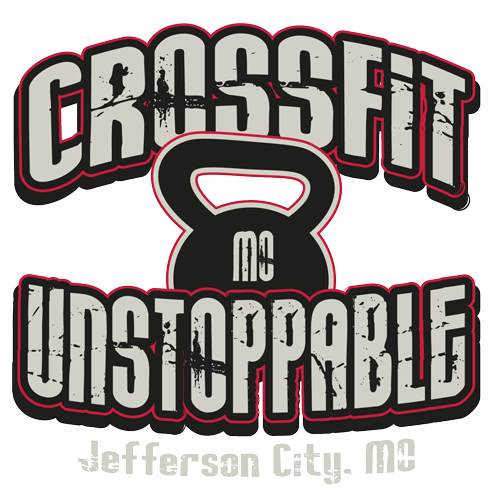“Why is it so important to stay hydrated?” via FamilyDr.org
Whether you’re a serious athlete or a recreational exerciser, it’s important to make sure you get the right amount of water before, during, and after exercise. Water regulates your body temperature and lubricates your joints. It also helps transport nutrients to give you energy and keep you healthy. If you’re not properly hydrated, your body can’t perform at its highest level. You may experience fatigue, muscle cramps, dizziness, or more serious symptoms.
A simple way to make sure you’re staying properly hydrated is to check your urine. If your urine is consistently colorless or light yellow, you are most likely staying well hydrated. Dark yellow or amber-colored urine is a sign of dehydration.
How much water should I drink while exercising?
There are no exact rules for how much water to drink while exercising because everyone is different. You need to consider factors including your sweat rate, the heat and humidity in your environment, and how long and hard you are exercising.
The American Council on Exercise has suggested the following basic guidelines for drinking water before, during, and after exercise:
- Drink 17 to 20 ounces of water 2 to 3 hours before you start exercising
- Drink 8 ounces of water 20 to 30 minutes before you start exercising or during your warm-up
- Drink 7 to 10 ounces of water every 10 to 20 minutes during exercise
- Drink 8 ounces of water no more than 30 minutes after you exercise
Athletes may want to measure how much fluid they lose during exercise to get a more specific measurement of how much water to drink (16 to 24 ounces of water for every pound of body weight lost).
What about sports drinks?
For most people, water is all that is needed to stay hydrated. However, if you will be exercising at a high intensity for longer than an hour, a sports drink may be helpful. The calories, potassium, and other nutrients in sports drinks can provide energy and electrolytes to help you perform for a longer period of time.
Choose a sports drink wisely. They are often high in calories from added sugar and may contain high levels of sodium. Also, check the serving size. One bottle may contain several servings. If you drink the entire bottle, you may need to double or triple the amounts given on the Nutrition Facts Label. Some sports drinks contain caffeine. If you use a sports drink that contains caffeine, be careful not to get too much caffeine in your diet.
What are the signs of dehydration?
Dehydration happens when you lose more fluid than you drink. When your body doesn’t have enough water, it can’t work properly. Dehydration can range from mild to severe. Symptoms of dehydration can include the following:
- Dizziness or lightheaded feeling
- Nausea or vomiting
- Muscle cramps
- Dry mouth
- Lack of sweating
- Hard, fast heartbeat
Symptoms of severe dehydration can include mental confusion, weakness, and loss of consciousness. You should get emergency medical attention immediately if you have any of these symptoms.
What is heat illness?
Heat illness can occur when the body is dehydrated and can’t cool itself effectively during exercise in hot or humid weather. There are 3 stages of heat illness:
- Heat cramps
- Heat exhaustion
- Heatstroke
Symptoms of heat cramps include painful muscle spasms in the legs, stomach, arms, or back. Symptoms of heat exhaustion are more serious. They can include faint or weak feelings, nausea, headache, fast heartbeat, and low blood pressure.
The most serious heat-related illness is heatstroke. Symptoms can include high body temperature (higher than 104°F), fast heartbeat, flushed skin, fast breathing, and possibly even delirium, loss of consciousness, or seizures. You should get emergency medical attention immediately if you experience any of the symptoms of heatstroke. Untreated heatstroke can lead to death.
What is hyponatremia?
Hyponatremia is a rare condition that happens when there is too little sodium in the body. It can occur in athletes who drink too much water. Athletes who participate in endurance activities (for example, marathons or triathlons) have a higher risk of hyponatremia. When sodium levels in your body are too low, your cells begin to swell with water. This can cause your brain to swell. It can also cause your lungs to fill with fluid. Symptoms of hyponatremia can include confusion, headache, vomiting, and swelling of the hands and feet.
How much water is too much?
This depends on your body and the kind of activity you are doing. Talk to your family doctor if you have questions about the right amount of water to drink while exercising.
Strength: Front Squat 6×2 @85% or Squat Cycle D1) 6X4 @80
“Fight Gone Bad”
3 Rounds of:
Wall Ball- 20/14
SDHP- 75/55
Box Jump- 20/16
Push Press- 75/55
Row (calories)
* In this workout you will move from each of the 5 stations after each minute. The clock does not stop between exercises. This is a 5 minute round from which a 1 minute break is allowed before repeating. On call of rotate, you must move to the next station immediately for best score. REPS is score.
SCALES: 45 seconds or 30 seconds work; 1 or 2 rounds-scale accordingly with weight/time
Cardio Cashout: 50 DU’s or 30 attempts (dedicated to Liz 🙂 But just so you know, this was programmed before the comment you made Sunday afternoon! 😉 )
Happy Monday!
Work Hard, Eat Clean, Be Blessed!


